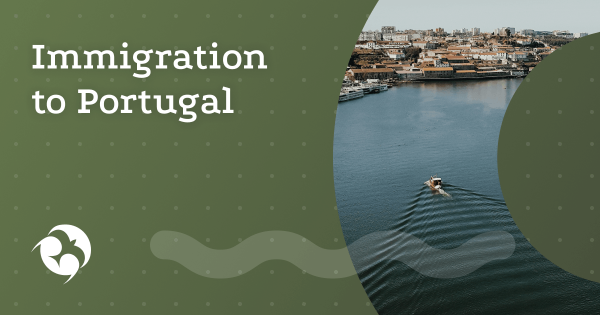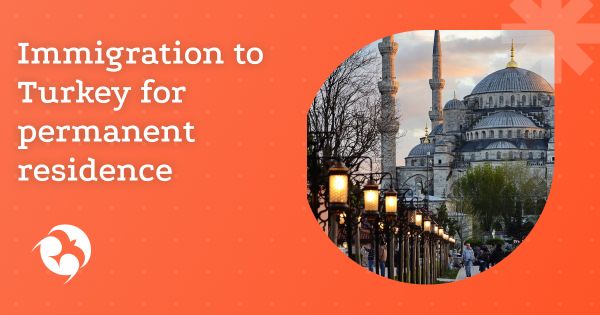Portugal consistently ranks 2nd in the European Union in terms of the number of naturalized citizens, second only to Sweden. This indicates a high level of integration of foreigners into Portuguese society. The number of immigrants is growing from year to year. This demand is explained by a unique combination of attractive conditions for relocation and ease of legalization compared to other European countries.
The country remains one of the most affordable to live in the European Union, combining relatively low prices with a high quality of life. Portugal is particularly attractive for remote workers, retirees and investors. The State has created special programs for these categories of immigrants, offering flexible conditions of stay and tax benefits. The opportunity to obtain citizenship after 5 years of residence opens up the prospect of visa-free entry to 187 countries around the world, including the USA, Canada and Australia.
Advantages and disadvantages of living in Portugal
Advantages
- Mild climate and natural diversity;
- Affordable cost of living;
- Loyal conditions for obtaining a residence permit;
- High level of security;
- Advanced medicine and social security;
- The prospect of obtaining European citizenship;
- Multicultural environment.
Disadvantages
- Difficult labor market;
- Bureaucratic difficulties;
- High taxes;
- Climatic features of some regions;
- Housing issue;
- Language barrier;
- Restrictions on employment.
Available ways to move
Portugal offers several legal ways of immigration. Each of them has its own unique conditions. According to statistics from the Agency for Integration, Migration and Asylum (AIMA), almost half of applications for a residence permit in 2024 were approved under investment, financial independence and digital nomadism programs. At the same time, the quota for work visas is filled by only 12%. This is due to fierce competition in the local labor market.
Digital Nomad Visa
By the end of 2024, Portugal entered the top 5 EU countries in terms of the number of Digital Nomad Visas issued. The program has been in effect since October 2022 and allows you to legally work remotely from anywhere in the country. For legalization on this basis, it is necessary to fulfill 2 key conditions – to have a monthly income of 3,480 € and confirm the availability of housing (rent or property). The program excludes employment in local companies and allows you to combine work with travel within the Schengen area.
After 5 years, nomad visa holders are eligible to apply for citizenship. In this case, proof of knowledge of Portuguese at A2 level, absence of criminal record and tax debts is required.
To join the program, you need proof of income for the last 3 months (at least 10,440 € in the account). For applicants with a family, 50% is added to the amount for the spouse and 30% for each child. The basis for issuing a Nomad Visa is a valid contract with a foreign company or self-employed status.
The process of obtaining
- Submission of the dossier to the consulate. The package of documents includes a certificate of non-criminal record with an apostille, a rental agreement, and medical insurance with coverage starting from 30,000euros.
- Consideration. It takes up to 60 business days. The consular fee is 80€.
- Entry to Portugal within 4 months after approval.
- Visit the AIMA Migration Service to receive a resident card.
Basic requirements for obtaining a digital Nomad visa
| Criterion | Requirement |
| Minimum age | 18 years old |
| Citizenship | Not from EU or EEA countries |
| Minimum monthly income | 3,480€ (4 minimum wages in Portugal) |
| Minimum accumulation | 10,440€ (12 minimum wages) |
| Type of employment | Remote work under an employment contract or self-employment |
| Accommodation in Portugal | Rent (minimum 3-12 months) or purchase of real estate |
| Criminal record | None |
| Medical insurance | With coverage starting from 30,000€ |

- We will answer all your questions
- We will help you choose the best option
- We will guide you through every step or do everything for you
Immigration through investment
For Russians, the Golden Visa program remains one of the most attractive for moving to Portugal, despite the radical changes in 2023-2025. According to official statistics, the total investments from foreign investors exceeded € 7.1 billion. On average, more than 1,200 applicants are legalized under this scheme annually.
Under the terms of the program, the minimum investment threshold is as follows:
- 250,000€ – art support, monument restoration;
- 500,000€ – scientific research or units of investment funds.
There are only a few basic requirements for the applicant. You need to have citizenship of a country outside the European Union, not be convicted and confirm the legality of sources of income. Family members can be included in the application. These can be spouses, children under the age of 26, and parents over the age of 65 who receive residency automatically.
Basic requirements for obtaining a “Golden Visa”
| Criterion | Requirement |
| Citizenship | Not from EU/EEA countries |
| Age | Over 18 years old |
| Criminal records | No criminal history (certificate from the country of residence for the last 5 years) |
| Investments | A minimum of €250,000 in one of the following options: – Investment fund units – Scientific research – Cultural heritage – Business with the creation of 5 jobs |
| Investment period | Saving investments for at least 5 years |
| Proof of income | Legal source of funds (employment contracts, tax returns, company founding documents) |
| Medical insurance | Coverage starting from 30,000 € for all applicants |
| Tax obligations | No debt in Portugal |
| Stay in the country | Minimum 14 days for every 2 years |
| Family reunion | The ability to include: – Spouse – Children under the age of 26 (financially dependent) – Parents over the age of 65 (without proof of dependence) |
| Language requirements | For citizenship: A2 level (after 5 years of residency) |
| Path to citizenship | Submission after 5 years of residency, subject to the conditions |
Residence permit for financially independent persons
A residence permit through a D7 visa also remains one of the most sought-after ways of legalization in Portugal. According to the Migration Agency AIMA, applications in this category show an annual growth of 15-20%. This is due to the flexibility of the conditions and the lack of requirements for employment in the local market.
The key requirement of the program is the confirmation of passive income from € 870/month from sources outside Portugal. These include pensions, dividends, royalties, or rents. For a family of 3 people, the minimum threshold increases to 1,566 €/month (+ 50% for the spouse and + 30% for the child). Additionally, rental or purchase of housing is required. At the same time, the value of real estate is not regulated. It is enough to have a lease agreement for the duration of the residence permit.
Holders of a residence permit for financially independent individuals can work for local companies or run a business, but are not required to do so. The Non-Habitual Resident (NHR) tax regime allows you to avoid paying taxes on foreign income for 10 years, provided there are no economic ties with Portugal.
Requirements for the applicant
- Citizenship of a country outside the EU or the Schengen area;
- Certificate of absence of criminal record with apostille;
- Medical insurance with coverage starting from 30,000€;
- Opening a deposit in a Portuguese bank for the equivalent of 12 months of income (minimum € 10,440).
Startup visa
According to the Portugal Startup Visa program, 9% of foreigners (out of the total number of issued residence permits) were legalized in 2024. The key difference from investment programs is the absence of capital investment requirements. It is enough to confirm the availability of 10,440€ in your personal account for the stay during the first year.
When making an application, the following conditions must be met::
- The project should offer technological solutions with international potential;
- Start cooperation with an accredited startup incubator. 142 organizations are eligible to participate in the program;
- The minimum account balance is 10,440€ for the main applicant. 5,220€ is added per spouse, 3,132€ per child.
In order to receive approval of the request, the applicant must provide a detailed business plan with a turnover of € 325,000 by the fifth year of work. The required documents include a certificate of absence of criminal record with an apostille and medical insurance with coverage starting from 30,000€.
The program allows you to include up to 5 co-founders and grants the right to reunite with your family. After 5 years, residents have the right to apply for citizenship, provided they pass the A2 Portuguese language exam and have no tax debts.
Basic requirements for obtaining a startup visa
| Criterion | Requirement |
| Citizenship | Not from the EU/EEA/Schengen or Switzerland |
| Age | Over 18 years old |
| Criminal records | No outstanding criminal record (certificate from the country of residence with apostille) |
| Financial requirements | – Minimum € 10,440 on account (annual cost of living) – For groups € 10,440 per participant (up to 5 people) |
| Project type | An innovative technology startup with: – The potential for international scalability – The prospect of job creation – Expected turnover/assets of 325,000€ in 5 years |
| Incubator approval | Contract with an accredited business incubator from the National Network of Incubators (RNI) |
| Documents | – Passport – Detailed business plan with presentation – Motivation letter – Bank statement – Founder’s RESUME – Tax number (NIF) |
| Visa validity period | 4 months to enter and apply for a residence permit |
| Primary residence permit | 2 years with the possibility of extension for 3 years |
| Minimum stay | 1.5 consecutive years or 16 months for a total of 2 years to extend |
| Family reunion | Inclusion of spouse, children under the age of 26 and parents over the age of 65 |
| Path to citizenship | Submission after 5 years of residency, subject to the conditions |
Through training
The D4 student visa remains one of the most affordable ways to legalize in Portugal. The total volume of the number of issued residence permits in 2024 is about 20%. The program allows foreigners to study at 46 accredited universities in the country, including the universities of Lisbon, Porto and Coimbra, which are in the top 500 of the QS world rankings.
In order to obtain a residence permit for studying, it is necessary to confirm enrollment in an educational institution. It is necessary to provide a confirmation from the university on an official letterhead indicating the specialty, duration of study and cost. The price of study starts from 2,500€ per semester in public institutions and up to 15,000€ in private business schools.
The applicant must demonstrate a minimum account balance of 5,000€ or provide a letter of sponsorship from relatives. For students under the age of 18, parental consent is additionally required. You will also need a rental agreement for the entire period of study or a dormitory reservation. The cost starts from 200 €/month in the province to 1,200€ in Lisbon.
Graduates can change their status to a worker upon employment within 12 months. Citizenship is available after 5 years of legal residence, provided that you pass the Portuguese exam (A2 level) and have no criminal record.
Residence permit for employment
Obtaining a residence permit through employment in Portugal is possible according to several schemes. The main ways for qualified personnel are the standard work visa (D1) and the EU Blue Card. It is important to note that in 2025 Portugal announced the introduction of a simplified Green Corridor procedure, which will help speed up the issuance of work visas to foreigners employed by Portuguese companies.
D1 work visa
The program is aimed at applicants with a contract from a Portuguese employer. The average salary in the industry should exceed 1,070 €/month (this is the minimum threshold for a family of 3 people). When applying, the employer must prove that there are no suitable candidates among EU citizens (through the Labor Market Test platform). The exceptions are 78 scarce professions (for example, software developers and medical personnel).
The applicant must provide a contract with the employer (for a period of 12 months or more), a diploma certified by the Portuguese MESS (Ministry of Education), a certificate of absence of criminal record with an apostille, and medical insurance with coverage starting from 30,000€.
EU Blue Card
Suitable for professionals with salaries above the national average (from 2,030 €/month). Since 2025, the Portuguese government has simplified the application procedure. Now registration is possible without a national D visa through the SEF online portal. After 18 months of work, it is allowed to find a job in other EU countries (except Denmark and Ireland).
The main design requirements include:
- Higher education;
- Employment contract with a Portuguese company;
- Salary is not lower than the established threshold;
- Compliance with the quota by profession.
Both types of permits allow you to legally work and reside in Portugal. After 5 years of legal residence with a temporary residence permit, you can apply for permanent residence and Portuguese citizenship (with proof of Portuguese language proficiency and no criminal record).
Through family reunification
The family reunification program allows foreign citizens legally residing in Portugal to bring their close relatives to live together for a period of more than 1 year. After 5 years, holders of a family reunification residence permit can apply for citizenship provided they pass the Portuguese exam (A2 level) and have no criminal record. The program is suitable for families where one of the members is already integrated into Portuguese society.
The right to reunification applies to:
- Spouse or registered partner;
- Minor children (including adopted ones);
- Adult children (if they are financially dependent and study at a Portuguese educational institution);
- The resident’s parents or his spouse/partner, if they are dependent (for parents under the age of 65, proof of financial dependence is required);
- Minor siblings who are under the legal custody of a resident.
A residence permit issued to family members is usually valid for the same period as the residence permit of the main resident. If a resident has a temporary permit, then the residence of a family member will have a similar period (extension is allowed). If a resident has a permanent residence permit, the residence permit of a family member is initially issued for 2 years and can also be extended.
Successful immigration is always accompanied by close attention to migration requirements and careful preparation of documents. Contacting experienced migration lawyers will help simplify the process, reduce the risk of rejection and save time. The professional support of our experts will help you avoid mistakes and get the desired resolution as soon as possible.












